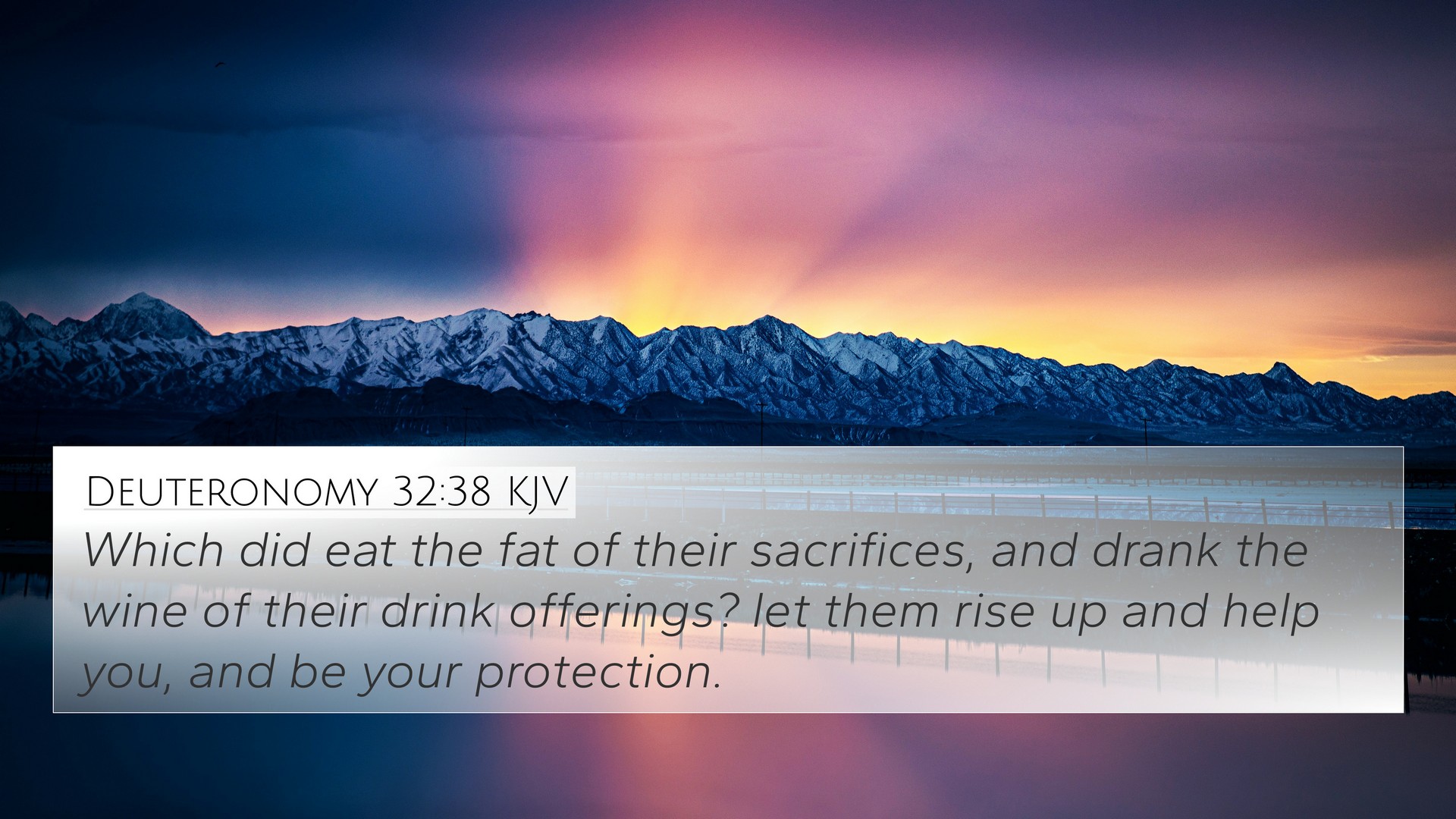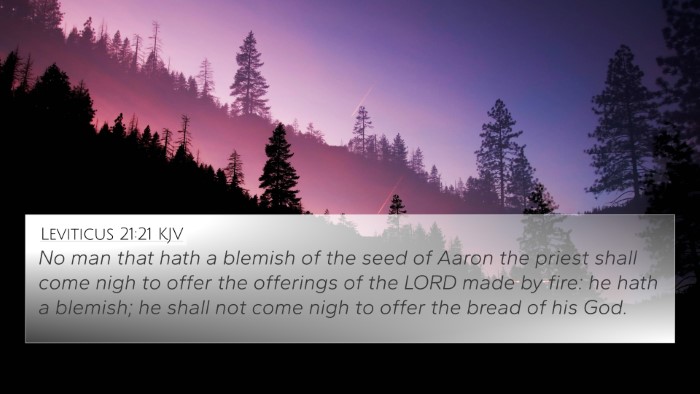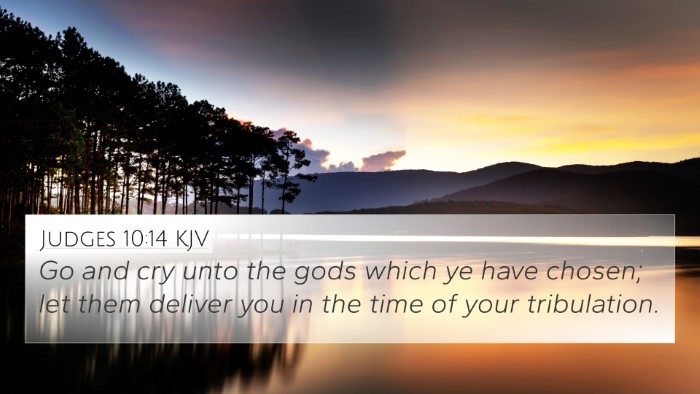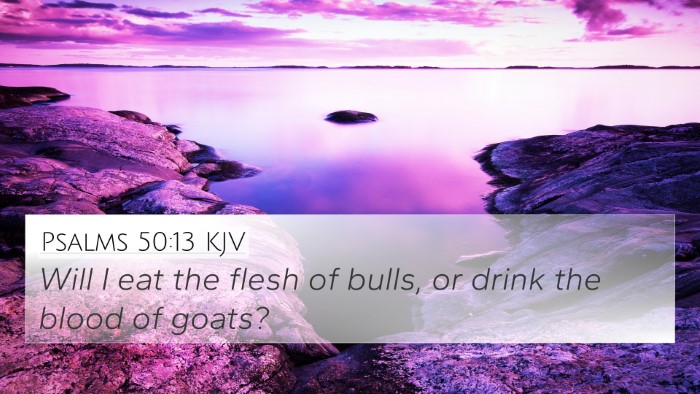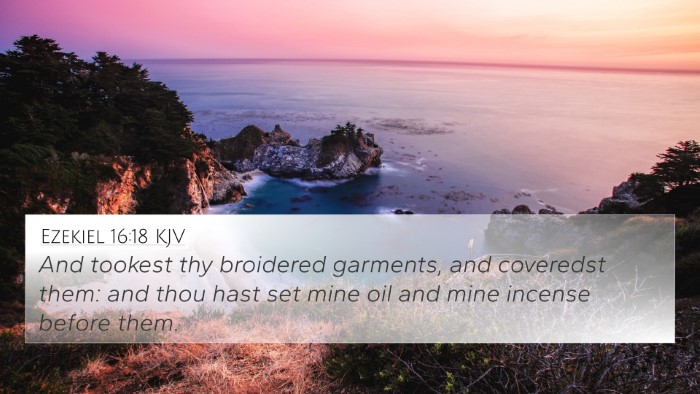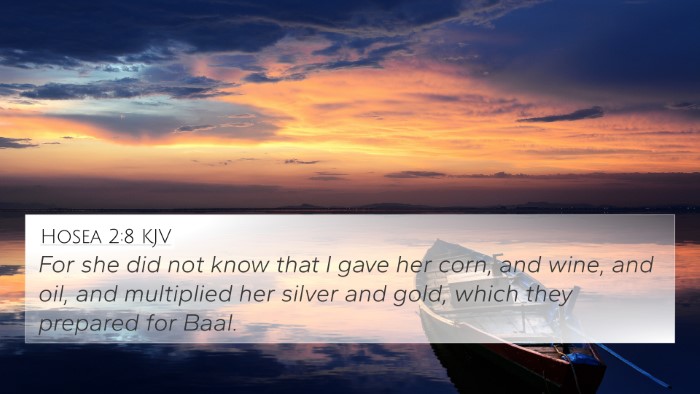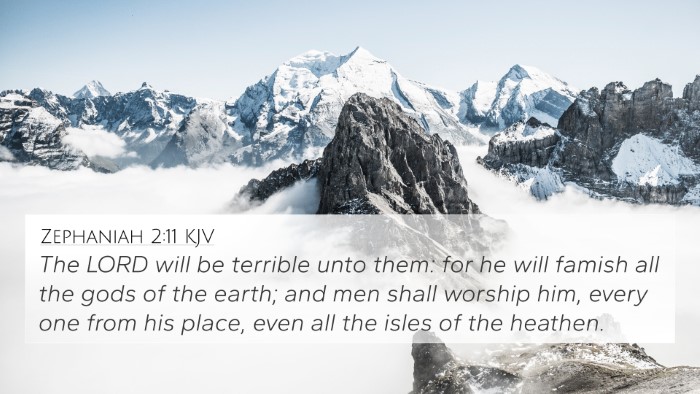Understanding Deuteronomy 32:38
Verse: "Which did eat the fat of their sacrifices, and drank the wine of their drink offerings? Let them rise up and help you, and be your protection."
This verse is part of the Song of Moses, where the prophet reflects on God's faithfulness and the consequences of Israel's unfaithfulness. Let's explore its meaning through various commentaries.
Commentary Insights
Matthew Henry's Commentary
Matthew Henry interprets this verse by emphasizing that Moses is calling upon the false gods which the people have resorted to for assistance. The reference implies that these idols, which were once the focus of Israel's offerings, are powerless and cannot protect them when facing judgment. Idolatry is highlighted as a major departure from reliance on the true God, and this admonition serves as a warning of the folly of turning to substitutes rather than trusting the Almighty.
Albert Barnes' Commentary
Albert Barnes notes that the focus on the "fat and wine" represents the best offerings that were given to these false gods. He highlights that the verse contrasts the past worshipping of idols with the subsequent need for reliance on God, showcasing the futility of their actions. There is a sense of irony here, as the very sacrifices offered to these idols will not provide any help at a time of crisis, reinforcing a lesson about the supremacy of the true God over all creations.
Adam Clarke's Commentary
Adam Clarke elaborates on the idea that Moses encourages the people to draw attention to the errors of their ways. The verse implies a dramatic challenge to their false beliefs and practices, urging them to see that their reliance on the fat of sacrifices and drink offerings has left them vulnerable and exposed. Clarke identifies this as a critical thematic moment in the text, illustrating the stark consequences of forsaking the real Lord for vain substitutes.
Key Themes and Cross-References
Deuteronomy 32:38 serves as a poignant reminder of the themes of idolatry and reliance on God. Here are some related Bible verses that explore similar themes:
- Exodus 20:3-5: The commandments against idolatry.
- Psalm 115:4-8: The futility of idols.
- Isaiah 44:9-20: The absurdity of making gods from wood and metal.
- Jeremiah 10:14-15: The inability of idols to provide any help.
- 1 Corinthians 8:4-6: The acknowledgment of one God over all.
- Galatians 4:8-9: The dangers of returning to weak and worthless things.
- Revelation 9:20: The stubbornness of those who do not repent from idolatry.
Thematic Connections Between Bible Verses
The idea presented in Deuteronomy 32:38 resonates across both the Old and New Testaments. Understanding these connections can enhance our comprehension of scripture. For instance:
- Moses' warnings to Israel mirror the warnings given by the prophets, reiterating the dangers of idolatry.
- Jesus often addressed similar themes when confronting the Pharisees, reminding them of the heart's true intentions over mere ritual.
- The New Testament letters frequently discuss the importance of remaining steadfast to the true gospel and avoiding distractions from false teachings.
The Importance of Cross-Referencing
To deepen our understanding of scripture, employing tools for Bible cross-referencing is crucial. By recognizing the connections between verses, we can unlock profound theological insights:
- Tools for Bible Cross-Referencing: Use a Bible concordance or a cross-reference guide to explore related passages.
- How to Use Bible Cross-References: Look up key terms or themes in your concordance to find passages that reinforce, contrast, or complement each other.
- Cultural Context: Understanding the historical and cultural backdrop can illuminate why these concepts are relevant.
Conclusion
In analyzing Deuteronomy 32:38 alongside commentaries from respected theologians and recognizing associated scripture, we find a rich tapestry of teachings about idolatry, reliance on God, and the perils of turning away from true worship. As we engage in comparative Bible verse analysis and study, we uncover the depth of God's message, continually leading us back to Him through inter-Biblical dialogue.
